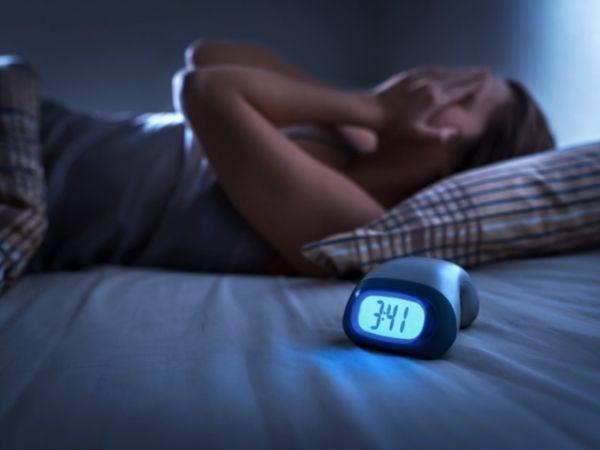Author: Dr Sonal Anand, Psychiatrist, Wockhardt Hospital, Mira Road, Mumbai
Have there been instances when you found it difficult to move or speak as you were waking up or falling asleep? The experience can be a haunting one and it is something that can happen due to sleep paralysis. Yes, you read it right.
A commonly experienced condition for many people, it is also one that often goes unreported as many fail to speak about it in the open. Here, we discuss the causes, symptoms and tips to prevent sleep paralysis.
What is sleep paralysis?

Image Credits: Unsplash
Sleep paralysis refers to a feeling of being conscious but unable to move. It generally occurs when one passes between stages of wakefulness and sleep. Thus, one will find it difficult to speak or even move for a few seconds, and there might be certain pressure and a feeling of anxiety.
It can also be associated sometimes with other sleep disorders, namely narcolepsy, a worrisome sleep disorder that makes you drowsy and leads to sudden sleep attacks throughout the day. However, those not having this disorder can also suffer from sleep paralysis.
Now think about this: Is there a temporary loss of muscle function while you’re sleeping? Are you afraid of hitting the sack? These things can be attributed to sleep paralysis. It is not a life-threatening condition, though it may be frightening and can cause confusion.
Causes behind sleep paralysis

Image Credits: iStock
Though the exact cause is unknown, some contributory factors can be insomnia, substance abuse, post-traumatic stress disorder (PTSD), anxiety, sleep apnea, depression, bipolar disorder, panic, sleeping on the back, or even a schedule that demands working in shifts.
Hereditary components might play a role, though there are not sufficient studies to prove this.
Symptoms of sleep paralysis

Image Credits: Unsplash
If you experience sleep paralysis, you may feel as if someone is pushing you down. You may get frightened or feel like someone is present in the room with you. It can also lead to having hallucinations before or after sleeping, sweating, having difficulty breathing or headaches.
Once you spot these symptoms, it’s best to speak to the doctor who will diagnose the condition promptly and suggest a proper line of treatment. The expert will examine your sleeping patterns, ask you about the occurrence of sleep paralysis episodes, take down your medical history and also track the rest of the symptoms.
Is there treatment for sleep paralysis?

Image Credits: iStock
Depending on the course of treatment, you might be advised to improve your sleep habits, follow a proper routine and get a good night’s sleep—at least eight hours on a regular basis.
If depression, anxiety, stress, PTSD, or bipolar disorder are found to be one of the factors causing sleep paralysis, you can seek help from a certified medical practitioner in the field. In the case of sleep disorders like narcolepsy, medication is prescribed to manage it.
Helping prevent sleep paralysis

Image Credits: iStock
Making some changes to your routine can help prevent sleep paralysis. It is imperative for you to get around eight hours of sleep and follow the same sleep-wake routine.
Exercise daily, de-stress by doing yoga or meditation. Avoid smoking, cut down on alcohol consumption, and do not have a heavy meal right before bedtime. Also, for those going through or prone to episodes of sleep paralysis, it’s best to avoid sleeping on the back.
Remember that it’s best to consult a doctor if you are facing these symptoms.
Lead Image Credits: Nitin Manmohan



